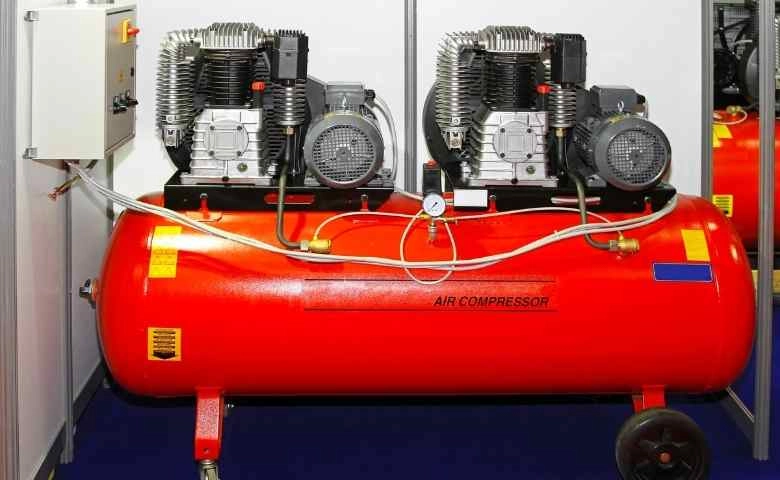Last Updated on January 23, 2021 by Admin
Hammering, drilling, sawing, welding, and the likes are some of the activities at construction sites. And, when you have your air compressors in operation too, the noise may become more heightened, and most times, we seem to have no choice than just to tolerate this noise because we just have to do what we’ve got to do.
Nevertheless, contractors, supervisors, or construction engineers need to guarantee and ensure the protection of their workers, which evokes the importance of encouraging and facilitating the use of an ultra-quiet air compressor. Air compressors are an essential aspect of the construction industry and have many advantages as mentioned below.
Table of Contents
Using Air Compressors in Construction
Pneumatic drills allow a significant amount of energy to be exerted; they’re quite powerful and relatively light. Speaking of air compressors, they’re a must-have for construction industries, and they aid in powering a large number of tools that are to be used by workers. Pneumatic tools put people at no risk of electrocution, and they’re safer to use, unlike electric-powered agencies.
Low Noise Air Compressors
Hearing issues, amidst many other harmful effects, hearing issues can be caused by anything above 85dB and workers must protect themselves from hearing damage by wearing ear protection. Construction site managers should not be selfish to think of just themselves alone but should also prioritise the welfare of their employees. When generating power for equipment, there can be a control and reduction in noise levels by using air compressors.
Noise levels can be stupendously decreased to around 40dB by using low noise air compressors, and there’s nothing wrong with reducing the noise levels further even though 60 dB is considered a safe level. More so, take note that it’s possible that a machine can generate less noise with an electric compressor’s power source and this is why it’s recommended that rather than choosing a gas-powered engine, an electric-powered compressor would do the trick in contributing to the reduction of noise levels.
Oil-free and Oil-based Air Compressors
Oil-based compressors often have a more complex design, and they’re more expensive than oil-free compressors. Oil-based compressors hold more weight because they require oil to function effectively, which further adds to their weight while oil-free compressors are lighter. More so, there’s a need to add oil to the piston area frequently, and a manual is required if you’ll be going for oil-based compressors.
Oil-free compressors require no further maintenance because they possess a lubricated cylinder, mainly Teflon. The point of this all is to show you that when using an air compressor, lubrication is an aspect that should be reviewed. After understanding their few pros and cons, note that oil-based compressors boast a longer lifespan and are more substantial than oil-free compressors.
Characteristics of Silent Oil-free Air Compressor.
- Low noise. It’s suitable for health and epidemic prevention, environmental protection, research institutes, laboratories of significant universities, laboratory matching, and analytical testing. It minimises noise pollution, and the output air pressure is stable without fluctuation.
- No oil, no water. It’s equipped with a drain port, and you’ll not have to worry excessively over oil and water out of the output gas.
- Steady flow. The output air is stable-voltage, and constant-current for it features the latest pressure-saving device.
- Long service life. It has a strong universality and long service life. There’s an internal spraying treatment the jar is subjected to, the machine is provided with an external protector, and the compressor comes with a starting preheating device.
- Easy operation. Operating this air compressor is easy as a Sunday morning. Through daily power transmission, the normal process can be realised, and all the troubles of adding lubricating oil, screw air compressor, and oil machine are eliminated.
Disadvantages of Oil-free Air Compressor
- Meeting the demand for large-scale gas supply doesn’t seem quite feasible because the displacement is generally low.
- Exhaust pressure is usually low.
- There is still room for improvements.
- The price is relatively high, and the same goes for its costs because of manufacturing techniques and advanced materials.
Final Thoughts
Before you proceed to get your compressors, ask yourself if you’ll need them for just occasional use or continuous use at the construction site(s). The thing is, there are a couple of crucial aspects that need to be reviewed in choosing your quiet air compressor.
You must put maintenance into check and check your budget too. Still, you shouldn’t ignore the importance of going for a quality silent compressor if you don’t want to be perturbed by damaging noise which is unhealthy.


